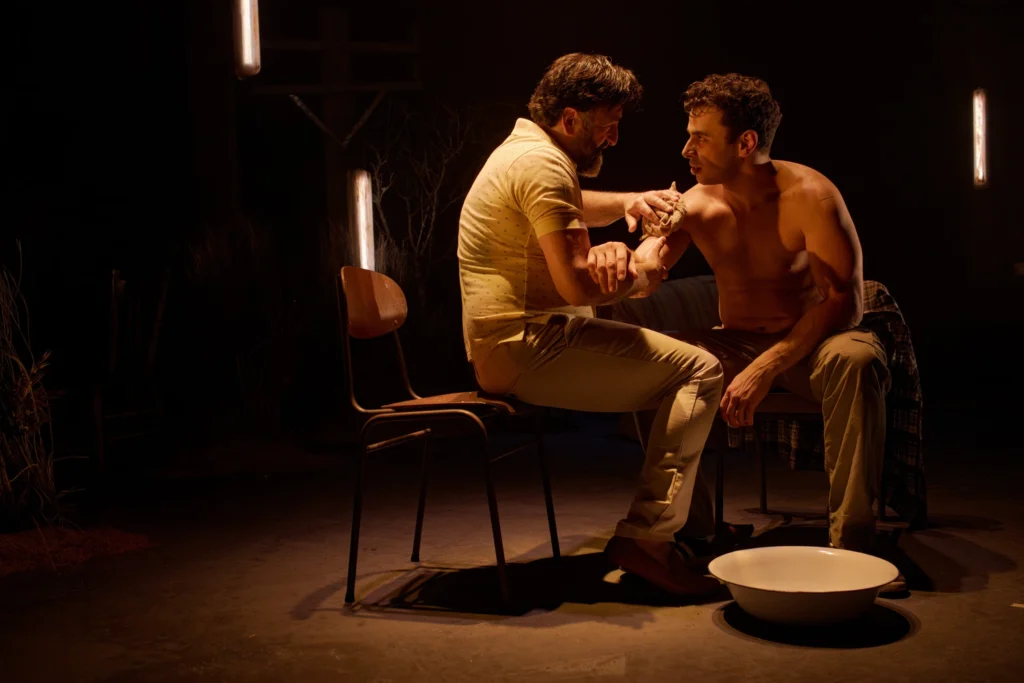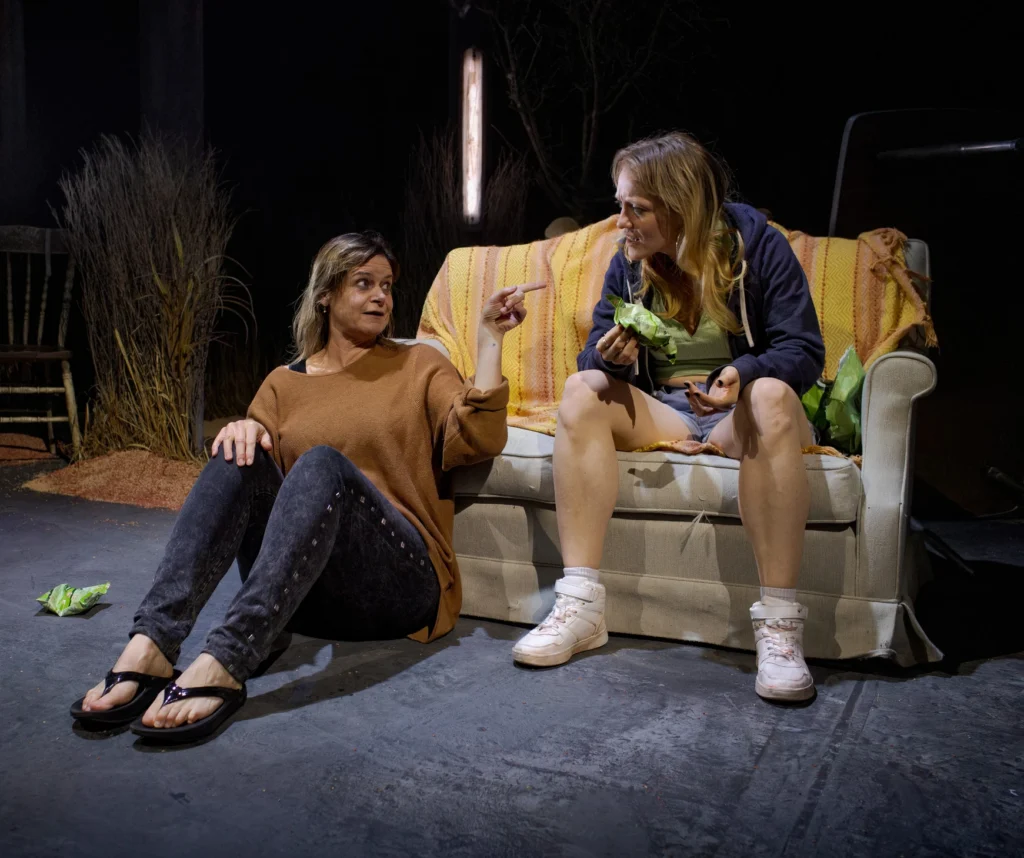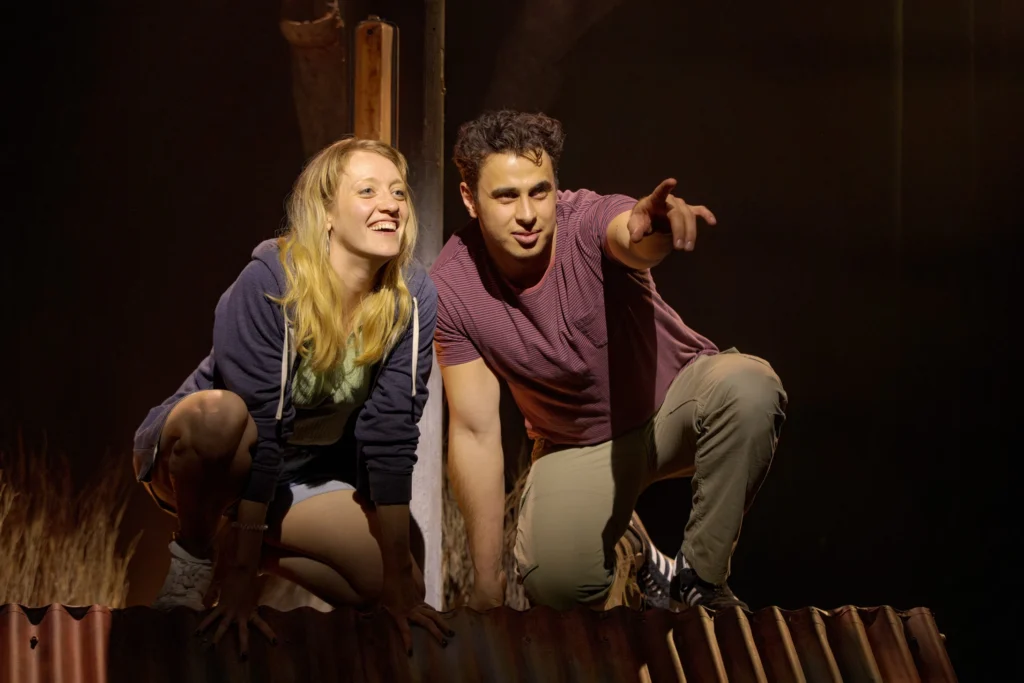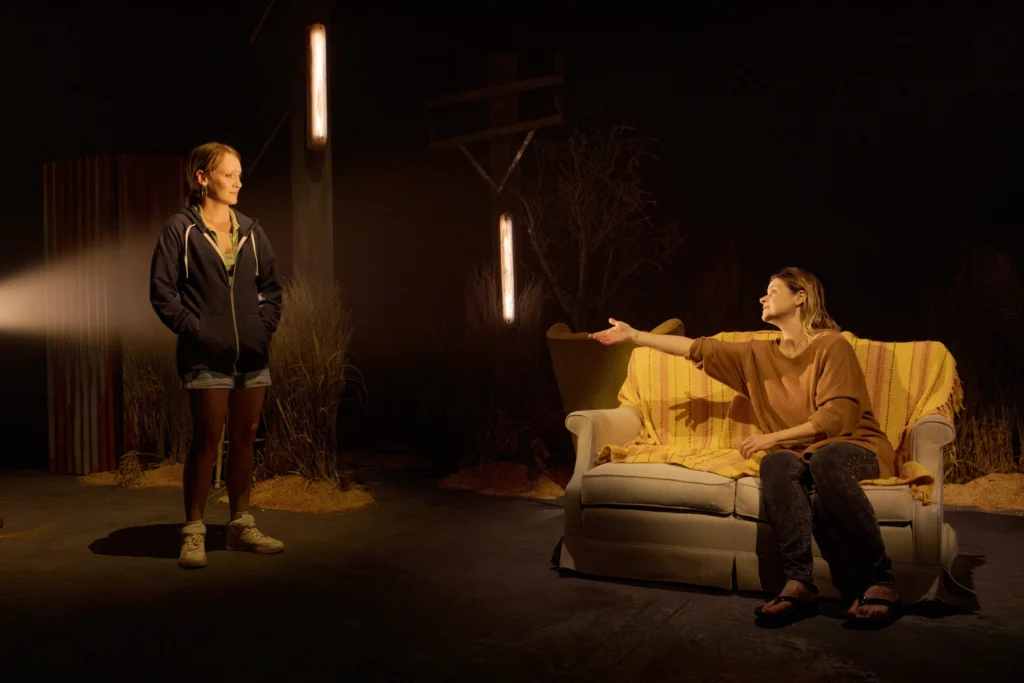Written by James Elazzi. Directed by Shane Anthony and James Elazzi. Presented by National Theatre of Parramatta
A unique production that stands apart in the mainstream crowd of works from diverse voices.
Reviewed by Juliana Payne
Lennox Theatre, Parramatta Riverside
Until August 3rd, 2024
Tickets: https://riversideparramatta.com.au/whats-on/karim/
Karim is a play about two young people who want to grow and blossom but feel trapped by their circumstances – a small town, economic hardship, and the parental and emotional ties that bind. It is set in an Australian rural town that is not prosperous, the kind of fading, choking town that seems to offer no hope to young hearts. And because it is written by James Elazzi, we have the added exploration of the experience of a first generation migrant boy from Lebanon, caught between worlds and and his sexual identity to boot. We can’t see how this is going to end well.
Youssef Sabet in the title role gives a raw but heart-felt performance, supported ably by Alex Malone as his best friend and confidante Beth. Between them they portray the classic Freudian tension that underpins so many humanist stories – the inevitable need for the child to break away and differentiate themselves from the parent, and the deep emotional reactions this evokes. In Karim’s case, his Lebanese background makes this separation a high stakes tussle between his need to grow up, with the added tension of his seeming rejection of his father’s culture.










Karim, Riverside Theatres (2024). Images by Phil Erbacher.
George Kanaan as the sensitive oud-playing teacher Abdul is probably the strongest performer, providing the foil and challenger to Karim’s development, providing a counterpoint to Joe, Karim’s father, played well by Andrew Cutliffe, a man of simple drives who is just trying to survive and help his son to do so.
Beth herself has to wrestle with the conflicting emotions she feels as she yearns to separate, for a very different reason, from her sadly meth-addicted mother Kaye and all the broken promises and lost opportunities Beth has suffered through. Jane Phegan as Kaye is convincing in this role that needs to evoke genuine pathos.
Elazzi’s text moves the play along at a cracking pace…
The two parallel lines of Karim’s and Beth’s struggles with love, resentment, and fear of the unknown beyond their tiny town play out on a well-made set by James Browne with its dilapidated woods, rusty corrugated iron, and dried up trees. The criss-crossing powerlines overhead are a clever metaphor for prison bars, as the characters in one way or another are all trapped here by circumstance or themselves.
When by chance Karim gets the opportunity to learn to play the oud, a beautiful ancient tear-drop shaped wooden instrument, he doesn’t even trust himself to be able to escape. The oud, known as the mother of all stringed instruments from lutes to guitars, features in the publicity posters and maintains a presence on stage for pretty well the whole play. It functions as both the link to Karim’s cultural past, as well as the potential escape route for him.
Images of ouds were found on ancient Egyptian walls, and it can sound melancholic, exhilarating or joyous. However, sadly they did not play much oud music during the piece, and to me the lack of oud music in the performance was a great disappointment. The short moments when the sound of playing was featured just left us wondering why more of it wasn’t used, whether as backing soundtrack or part of the action. After all, this was the fulcrum of the plot, the device that awakens Karim’s desire to escape a mundane fate.
[Elazzi] continues to bring new stories to light that need to be told if we are to understand fully our Australian selves.
Elazzi’s text moves the play along at a cracking pace, although at times it is not quite clear how the characters’ have arrived at a certain point in their development – they seem to turn on a dime sometimes. The joint direction is sound, but sometimes the staging is static with characters simply standing around while others deliver their lines.
The lighting and sound is very filmic, and the overall framing is very much like a feature film, which is a wise decision if you are appealing to a younger audience who may not have much theatrical experience. The decision to eschew an interval and stick to a tight 90 minute performance is effective and keeps the tension going to the final scene.
Karim is a production that is part of the long-overdue diversification of Australia’s white, mainstream artistic and cultural milieu. We can now regularly see and hear works by First Nations peoples, migrants from the Middle East to south east Asia and China, queer artists and women, and James Elazzi certainly has form in this space. His Son of Byblos a few years ago trod this path well, and he continues to bring new stories to light that need to be told if we are to understand fully our Australian selves.
CAST & CREATIVES
Writer James Elazzi
Director James Elazzi
Director Shane Anthony
Set & Costume Designer James Browne
Lighting Designer Frankie Clarke
Sound Designer & Composer Aimme Falzon
Stage Manager Saz Watson
Intimacy Director Trish Speers
Starring Youssef Sabet, Jane Phegan, Andrew Cutcliffe, Alex Malone & George Kanaan








